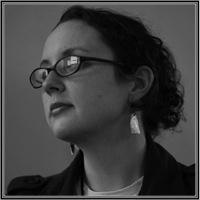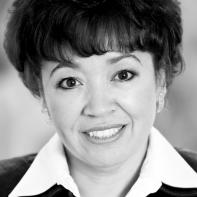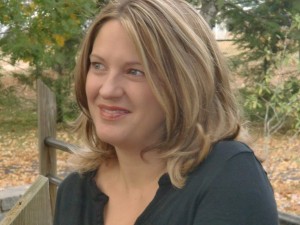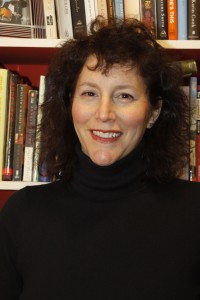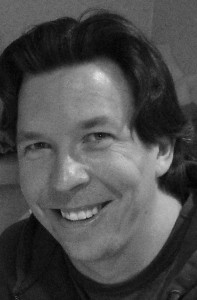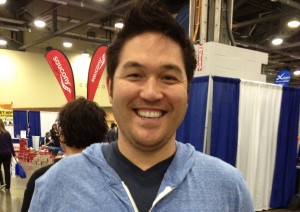 Michael Croley grew up in the foothills of the Appalachian Mountains. He holds graduate degrees in Creative Writing from Florida State and the University of Memphis. In 2011, Narrative Magazine named him to its list of “Best New Writers.” He has won awards and fellowships from the Kentucky Arts Council Sewanee Writers’ Conference and the Key West Literary Seminars. His first novel, After the Sun Fell, will be released as part of Narrative’s Library Series in 2012. He teaches at Denison University in Granville, Ohio. www.michaelcroley.com
Michael Croley grew up in the foothills of the Appalachian Mountains. He holds graduate degrees in Creative Writing from Florida State and the University of Memphis. In 2011, Narrative Magazine named him to its list of “Best New Writers.” He has won awards and fellowships from the Kentucky Arts Council Sewanee Writers’ Conference and the Key West Literary Seminars. His first novel, After the Sun Fell, will be released as part of Narrative’s Library Series in 2012. He teaches at Denison University in Granville, Ohio. www.michaelcroley.com
SR: Your story “Two Lives,” published in Blackbird, contains two distinct stories: a metafictional narrative in which the narrator talks about his writing life (or lack thereof) and the actual text of the story this character wrote. When you began this story, did you set out with the intention of blending two narratives, or did the story evolve into its current form?
Michael Croley: I always remember how this story came to life because it was the first story I ever wrote that made me get out of bed to complete it. I started with the story’s first line, “You don’t know what it’s like to be in the bed as a child and feel the air of fall enter your room and hear the dishes in the cabinets of your home rattle, their doors slammed by some drunk looking for a fresh bottle of liquor.” I wanted the second person to implicate the reader, to say, “Dear Reader, you know nothing.” As I wrote the story and came to the end of the first space break, another voice entered my head with that line, “Years ago, I tried to write this.” Rather than fight the new voice, I went with it and suddenly I realized I was writing two stories inside of one. I’m not really into meta-fiction. I believe that a writer’s allegiance is to the reader, to guiding them through the story, and I don’t find this story to be of the smarty-pants variety, but even I knew this one had a weird structure as I was going through it but I didn’t let myself worry about it too much. I just knew both of these voices were speaking to me (and I hate putting that out there because it makes the writing process sound so new age-ish, but there is some truth to this concept) and I followed them through. As the story went on and I got near the end, I realized that both stories, both threads, had to have equal time on the page in order for the story as a whole to have maximum impact. So as I started revising, I actually cut and pasted all the second-person threads into a new document and made sure that both stories read like fully-formed, complete stories. Then it was just a matter of weaving the threads together at the right moments so that the reader would be doubly haunted by both the second-person story and the first-person narrative and how both of those ended.
I’d never written a story, structurally, like this before—and haven’t since—and one of things that I do pat myself on the back about in regard to this story is that the structure seems really unique to me. But I’m sure I ripped it off from somebody unconsciously because that’s what we do as writers. We steal. This is also the first story I ever had published and that was pretty damn cool.
SR: Your story “Insulation” in Blackbird is one of those rare short stories with a happy ending. The main character, Lynn, seems to get what she wants, and the marriage that seems on the verge of breaking up appears to actually be strengthened at the end. When you began writing the story, is this the ending you envisioned? Do you feel that there is a risk involved in writing so-called happy endings?
MC: Here’s an instance of when you give a story to the world, it is no longer yours to decide what it is to the reader or what it could be. I don’t know that I ever saw this couple on the verge of breaking up. I saw them as struggling, yes, but I never believed Lynn would leave him. In my mind, from the beginning, she was upset and frustrated and wanted her husband to stand up and take care of her but she loved him and wasn’t going to leave him. She loved him too much to do that. She wanted to push him to be more, to reach his potential and she takes that on as her task, as her role in this marriage. I wanted them to come to an understanding, for him to see her strength and resilience and for him to acknowledge that. Once Allen picked Lynn up from her job I knew they would go home and that the change, if we subscribe to the idea that all stories are about change, would have to come from him—and it does because he sees what the reader sees in her—and that’s what I had happen. But this is Lynn’s story, so we had to end with her and I lifted the image of her in the tub from a really bad poem I wrote (I still thought I could write poetry at the time), imagining a woman coming home at the end of a long day.
I don’t know if there is a risk involved with happy endings. I know my students often ask why all the stories I assign to read are sad, but I don’t think of an ending that doesn’t end with everyone getting what they want as sad. Not always. All I want is for a character to have some realization or knowledge he or she didn’t have when the story began. I often tell my students that the writer’s job is to make her characters hit that higher plane of knowledge then pull the ripcord on the story. Get out. You’ve done your work. Lynn realizes that Allen does love her. That he isn’t immune to her struggles and how she works herself like a mule for the both of them. When she sees that she is able to face her life in ways she couldn’t before and that’s more important than Allen’s change in behavior. And when that happened in the story, that’s how I knew it was complete.
As a side note, when I first workshopped this piece, it got really beat up by several women in the class who didn’t understand why Lynn remained with Allen to which the workshop leader (my mentor Richard Bausch) said, “Did you ever think she loves him?” I mention this because we are subject to overthinking this pursuit from time to time, to letting our own personal feelings about the way the world should be rather than it is invade our work and reading. But stories, at their heart, are about “news of the spirit” as the late George Garrett said, and what we do as writers is to imagine ourselves into that spirit without any judgments.
SR: Many of your stories take place in Fordyce, Kentucky. How does a sense of place impact the stories you choose to tell?
MC: Well, for me, it impacts everything. Fordyce is stand-in for my own hometown right down to topography and landmarks, but it has that fictional name so that I can blend different elements into the town from surrounding areas from time to time and because I didn’t want to be too constrained by the “facts” of Corbin, Kentucky, where I was raised. But place is something I’ve always been drawn to. Because my mother is Korean (my father grew up out in the country near Corbin) I think I always felt out of place there. I looked different from all my classmates. Corbin has a history of racism that’s pretty well-known throughout the state and I can only remember going to school with two other people of color growing up. So things weren’t always necessarily easy for my mother or my brother and me. I think that sense of identity that I received from that place has had a large effect on my work, especially in the two novels I’ve written. I never looked at things with strictly an insider’s viewpoint, though I like to think I have that viewpoint as well. I saw lots of good people in Corbin who were hardworking, blue-collar types and I admired their grit and what I saw as even-mindedness. Practical might be a good way to put it. And at the same time, a lot of my friends’ parents were bankers, lawyers, doctors, pharmacists. That’s one of the hidden truths about Appalachia, that not everyone is poor and backward. We’re not all the sons and daughters of miners and laborers.
I think that kind of place is ripe for storytelling because it’s relative smallness allows for the pecking order and machinations of the town to be clearly visible if you’re paying attention. Corbin isn’t so small that you know everyone but it is small enough that you probably know someone who knows the person you don’t. Because of that you’re never out of the reach of a story to be heard about So-and-so and what he’s doing. When I started writing as an undergraduate I was very conscious about honoring this place where I’d grown up and telling the stories that I thought were worth telling that I never saw in Esquire or The New Yorker. There’s a reason in the two stories you’ve mentioned that the characters are college educated. I was tired (and still am) of reading only about backward hillbillies in rural areas. My father was a man who worked his way through a good school and chose to come back to that part of the world. And at the same time, as I’ve gotten older, I see how the dual nature of ethnicity has played a large role in how I write my stories. My characters always seem in between worlds, pulled in different directions by different desires. So to answer your question briefly (and to stop going on), I think I’m trying to figure out in a lot of ways of how place shapes us. How does the place where we mature get into our bloodstream? I don’t think we ever escape our childhoods and a lot of what I see myself doing is exploring Fordyce as Corbin and asking the question, What has this place done to this character for good or ill?
SR: You published an “iStory” in Narrative – a new type of micro-fiction created by the magazine to coincide with their new digital App. These stories are all under 150 words. Do you find it more or less difficult to write micro-fiction like your story “One Such as This” than your longer pieces? Did writing with the digital App in mind change anything about the writing process?
MC: Well, first off I just want to say that Narrative has been a great venue to me. Very supportive of my work and I think the world of what Tom Jenks and Carol Edgarian are trying to do with literature in this electronic age. I think they’ve been very visionary and the idea of an iStory seemed gimmicky to me at first because I just didn’t think you could tell a story in such a small amount of space. That was/is the challenging part. It’s like “Name that Tune.” How many notes does it take to tell your story? Less notes, to me, is often better. So that’s what I tried to do and that was the challenge of it. A lot of times I have a great image but not a great story to tell. And because, as I mentioned earlier, I’m not a very good poet, I wanted to use this image I had of an alley in back of my favorite movie theater in Cleveland where I used to live. I just liked the idea of two people in this very dark alley making out and then moving them through the night and into the morning. So, in one sense, the piece was easier because there was less I had to do, but harder because the word limit magnifies your choice of diction, your details, and your sense of emotion in the piece.
I don’t often write micro-fiction because I’m interested in really playing the characters’ lives out as much as I can. As far as I want to go. For instance, neither character gets a name in that iStory, which gives me more observational distance and less attachment to seeing their lives come together or undone as you might in a longer piece. And the iStory seems to me to be less about narrative arc than a singular moment that lingers in the reader’s mind and imagination after what they’re done being a witness to the story.
SR: What are you working on at the moment?
MC: Well, I have an agreement with Narrative to release my first novel After the Sun Fell as part of their new Library Series. I’m really excited about that because everything they do is so good and I’m flattered that Tom Jenks wanted to first look at the novel then said he wanted to work with me on it. That book is based in small part on my mother’s move to southeastern Kentucky from Masan, South Korea after she married my father. An excerpt of it is up on Narrative as a contained story entitled, “Washed Away.” As long as Tom and I can find some time to work on this soon, I think that book will be released in 2012, but that’ll, ultimately, be up to Tom and I’ve learned to listen to him as much as possible.
And my agent is currently shopping my second novel around. It’s about a family that’s moved out of Fordyce to Memphis, Tennessee in 1968 right before the Sanitation Workers’ Strike, which indirectly led to the assassination of Martin Luther King, Jr. The book is narrated by Ben Hamlin who was 12 when his father moved the family to Memphis. A grown man now, Ben is looking back on that year when his family—and their hopes—began to unravel as their own personal tragedies get entangled with the Civil Rights Movement’s greatest tragedy.
My next novel is entirely in my head (though I think the opening scene is written) so I don’t want to say too much about it. But it will be, I hope, both an homage to and a retelling of All the King’s Men with the central figure being more of an LBJ type politician. This is mostly because I love All the King’s Men—I don’t think there’s a bad sentence in the book—and because I think LBJ was a fascinating politician and I think we live in a very politically fractious time, almost as fractious as the ’60s but we’re not quite there yet.
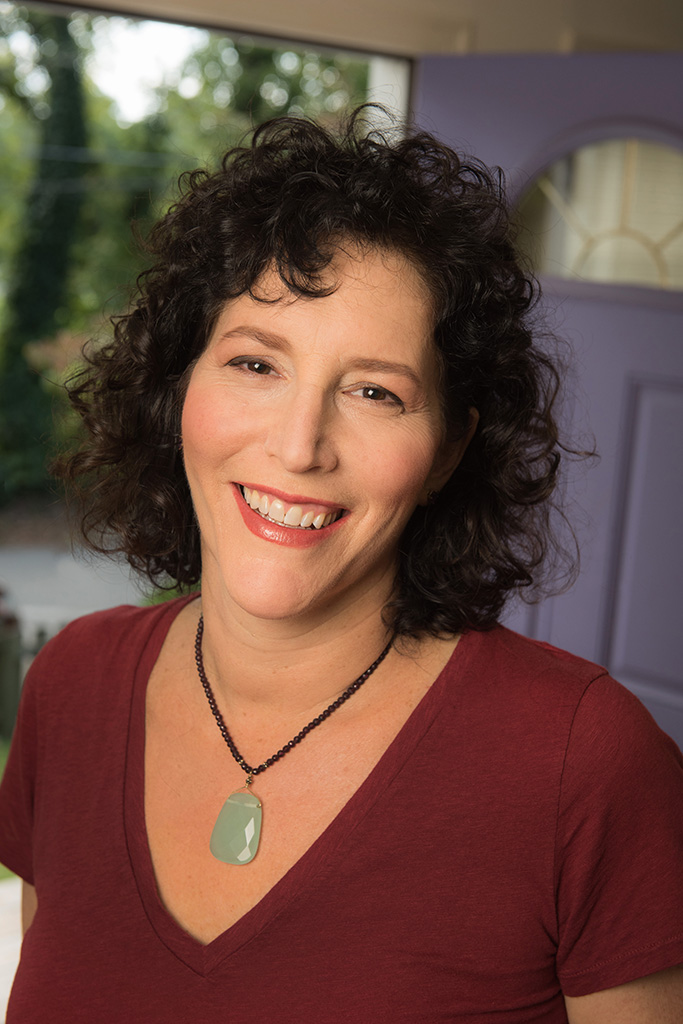 Michelle Brafman is the author of We Named Them All: Stories, and her debut novel Washing the Dead will be published by Prospect Park Books in April of 2015. She has received numerous awards for her fiction, including a Special Mention in the 2010 Pushcart Prize Anthology, the F. Scott Fitzgerald Short Story prize, and first place in the Lilith Magazine Fiction contest. Her stories have appeared in The Minnesota Review, Blackbird, and Fifth Wednesday Journal, among other places. She teaches fiction writing at George Washington University and the Johns Hopkins University MA in Writing Program. Michelle is also an award-winning filmmaker and lives in Glen Echo, Maryland with her husband and two children. For more information: www.michellebrafman.com
Michelle Brafman is the author of We Named Them All: Stories, and her debut novel Washing the Dead will be published by Prospect Park Books in April of 2015. She has received numerous awards for her fiction, including a Special Mention in the 2010 Pushcart Prize Anthology, the F. Scott Fitzgerald Short Story prize, and first place in the Lilith Magazine Fiction contest. Her stories have appeared in The Minnesota Review, Blackbird, and Fifth Wednesday Journal, among other places. She teaches fiction writing at George Washington University and the Johns Hopkins University MA in Writing Program. Michelle is also an award-winning filmmaker and lives in Glen Echo, Maryland with her husband and two children. For more information: www.michellebrafman.com
